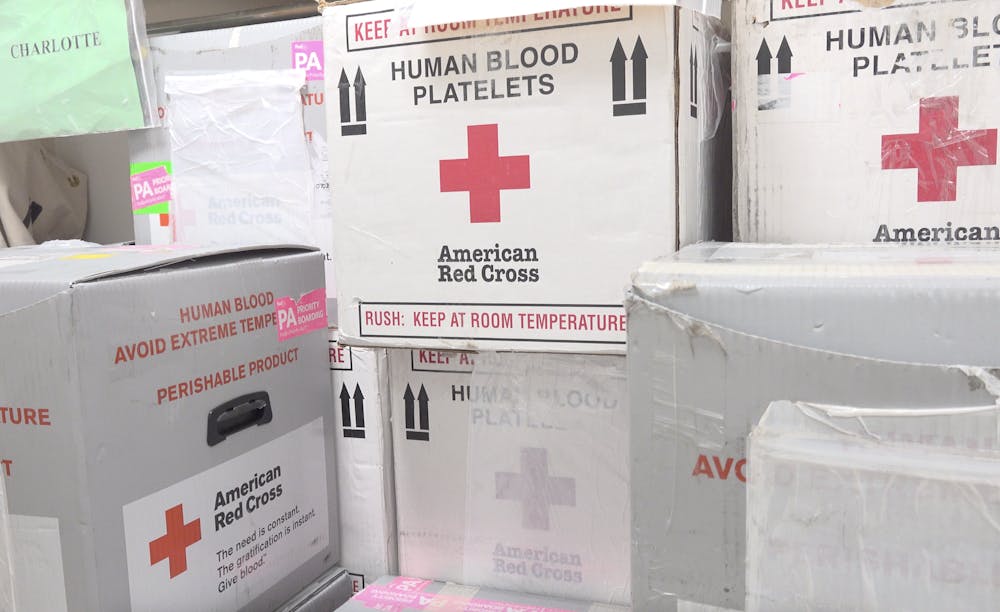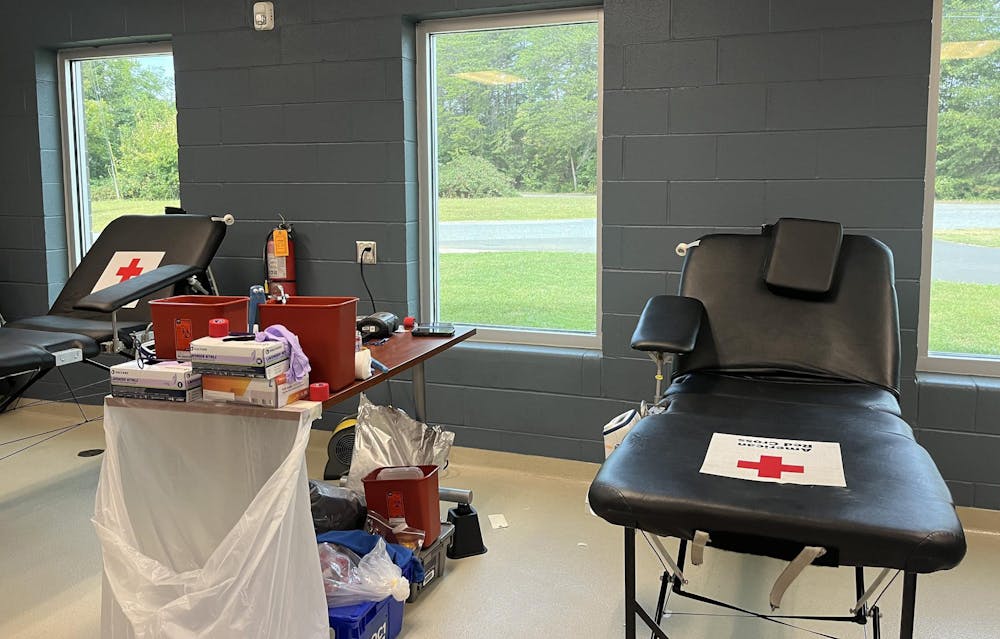Heather Frazee still remembers the first time she donated blood.
“I remember going home and telling my husband I’m like, ‘I can't believe I waited so long’ because it was not that big of a deal,” Frazee said.
Frazee, the executive director of the Piedmont Triad Chapter of the American Red Cross, said she shares her experience to inspire others to donate blood, especially during the current blood shortage.
In July, the American Red Cross reported a 25% decrease in its blood supply. According to Frazee, the summer is typically a slow time for blood collection because people are away for summer vacations or school breaks; however, this is the lowest the Red Cross’s blood supply has been in 20 years.
“Blood can’t be manufactured,” Frazee said. “It can't be stockpiled. So, it really is important the only way we can get that is to have individuals that come out to donate.”
As a national blood bank, the Red Cross collects blood at blood donation centers and community blood drives. According to Frazee, when they cancel one community drive, it affects the entire country.
“Since we’re the national blood bank it’s a pronounced effect — a ripple effect if you will — across the country,” Frazee said. “If we cancel something here then it impacts our partnerships across.”
According to Frazee, the American Red Cross supplies 40% of the nation’s blood supply.
“Hospitals are needing the blood faster than we can provide it because the only way we can provide it is if people come in to donate,” Frazee said.
While Frazee said the organization doesn’t track blood supply regionally, she said Hurricane Debby forced the Red Cross to cancel drives across North Carolina.
The Red Cross collects a third of its blood supply from drives at high schools and colleges — according to Savalas Squire, a member of the Red Cross blood collection team.
“We try to do t-shirts, we try to do snacks, we try to do raffles,” Squire said. “Everything to get the students involved. I mean, just to start as early as you can, so we can have a long term donor.”
While t-shirts and snacks get people to donate, the Red Cross’ app provides a virtual motivation for donors. The app allows users to schedule blood donation appointments, see blood drive locations, track where their donations travel, view donation history and monitor health vitals.
Jessica Gonzales works at the Burlington Animal shelter and donated blood at the Red Cross’s blood drive at the shelter on Sept. 12. Gonzales said she enjoys being able to track where her blood goes.
“I like to track where the blood goes,” Gonzales said. “Sometimes it's local, sometimes a little far out, so it's nice seeing where it goes and it's put to good use.”
Gonzales also said she was unable to donate blood the last time she tried because she had low iron levels. To prepare for this donation, she researched ways to raise her iron levels in the hopes of being able to help those in need.
The blood drive at Burlington Animal Shelter is just one of the Red Cross’ many partnerships around the community. According to Frazee, partnerships are essential to the success of the organization's efforts.
“Partners are integral to all that we do, not just for blood services but for all the work that we do in the community,” Frazee said. “They are the people that we are serving and we don’t do everything, so it’s really critical that we make sure we have strong partnerships so that we can serve our communities.”

Blood donated at blood drives and centers is sent to Red Cross' Greensboro Blood Donation Center testing facility Sept. 5 before being sent to hospitals or put in storage.
In May 2023, the Food and Drug Administration changed its restrictions for blood donor eligibility relating to individual donor assessments. The new guidelines now allow members of the LGBTQIA+ community, who were previously restricted from donating blood, to donate at Red Cross drives and blood banks.
According to Frazee, the changes — implemented by the Red Cross in August 2023 — make donating blood a much more inclusive process, opening up the possibility of a whole new community of donors.
Yet, The American Hospital Association stated that only 3% of eligible Americans donate blood each year. Frazee said she wishes more people would understand that donating just one bag of blood can help up to three people.
“The foundation of it is that that person needed blood for some reason, and it was there when they needed it the most,” Frazee said.
To learn more about donating blood call 1-800-RED-CROSS, or visit the American Red Cross’s website at redcross.org.


